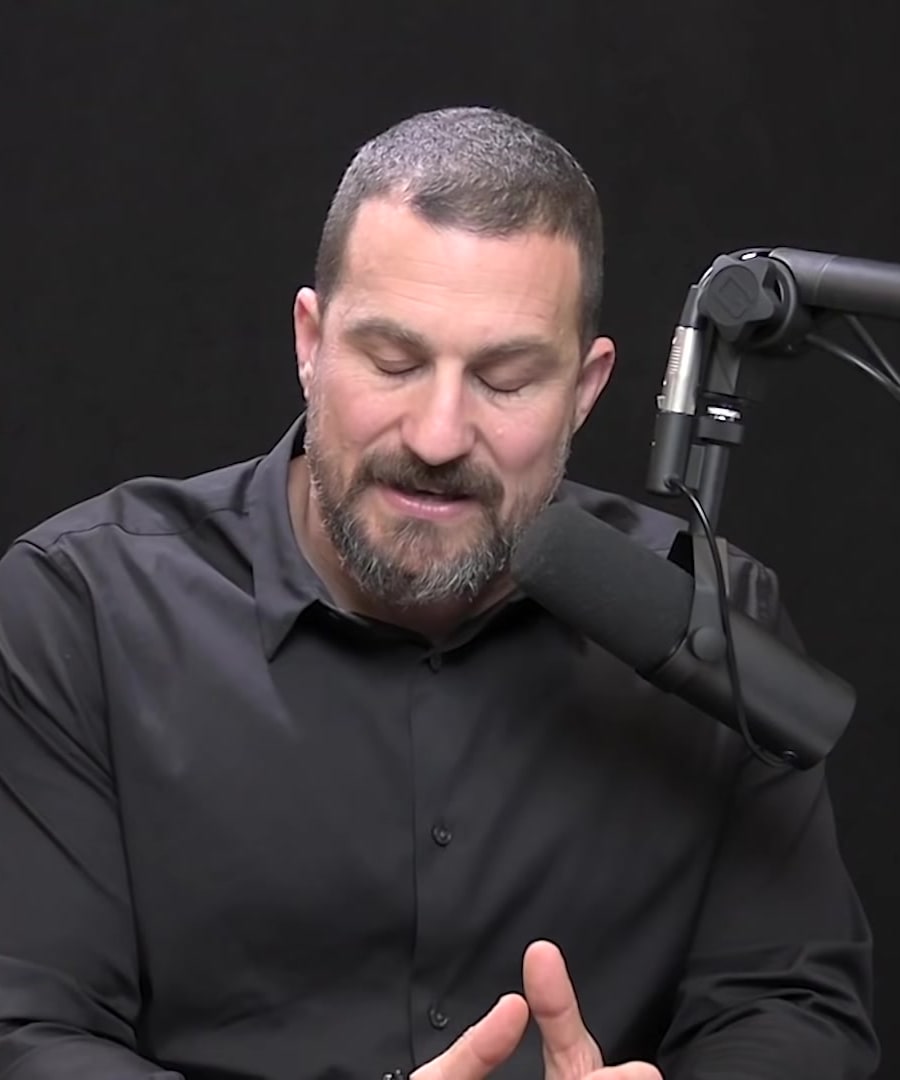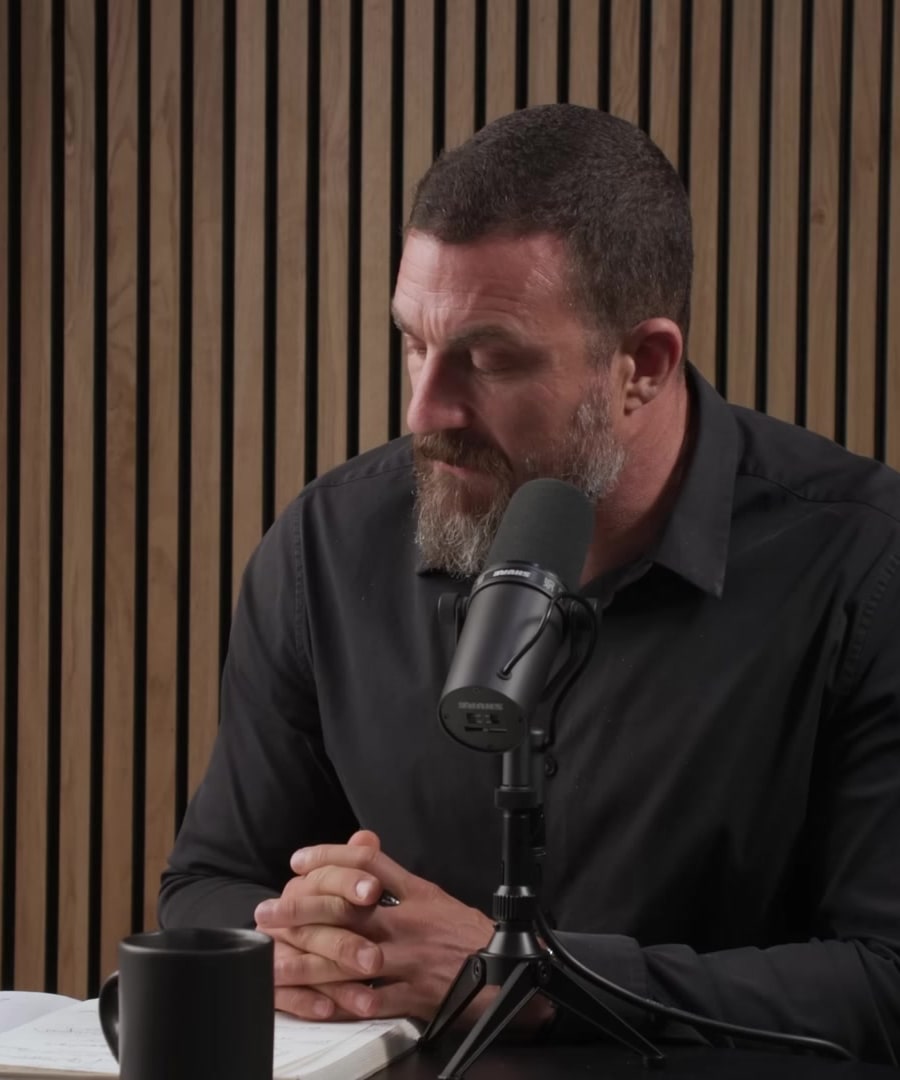How should I structure my Journal and Journaling for maximum benefit? I am going to journal twice daily, 5 minutes in the morning and 20 minutes at night.
Sources:
For maximum benefit in your journaling practice, consider integrating two distinct approaches suggested by .
Morning Journaling (5 minutes)
Opt for a goal-oriented approach in your morning entries:
- Set a clear intention for the day.
- Define specific topics or objectives, focusing primarily on your aspirations and generative goals like accomplishments or changes you wish to initiate. 1
Night Journaling (20 minutes)
Implement a more introspective and reflective method in the evening:
- Allocate 20 minutes to write about significant or challenging personal experiences.
- Follow this by a quiet time of about 10 minutes for calming down and transitioning from the emotional depth of your writings back to regular activities. This allows the autonomic nervous system to stabilize after delving into intense topics. 2
This combination of structured and transformative journaling in your daily routine can help in fostering mental health through the development of agency and gratitude, and by engaging your mind in a generative, healing process.
RELATED QUESTIONSCan you give me some examples on how i can do these?
Sources:
Here are some detailed examples of how you can structure your morning and evening journaling sessions for maximum benefits, based on the advice from :
Morning Journaling (5 minutes)
- Set a Goal: Begin each session by setting a clear intention or goal for the day. This primes your mindset positively for upcoming challenges and opportunities 1.
- Focus on Generative Goals: Limit your entry to topics like aspirations and what you aim to achieve. This might include:
- Personal development goals.
- Career objectives.
- Relations you want to improve or nourish.
- Reflect on Agency and Gratitude: Consider how you can exercise control (agency) and express gratitude towards your life circumstances, which boosts mental wellness 1.
Night Journaling (20 minutes)
- Reflect Deeply: Use this time to dive into your emotions or difficult experiences from the day. This can be a therapeutic exercise to process emotions and stress 2.
- Repetitive Focus for Deep Issues: If dealing with significant emotional challenges, consider writing about the same topic across multiple days, which can lead to greater psychological relief and insight 2.
- Include Quiet Time: After a heavy writing session, spend around 10 minutes in quiet reflection. This helps stabilize your emotions and prepares you for rest. Activities could include:
- Deep breathing.
- Meditation.
- A short walk.
These structured approaches provide a holistic method to manage your mental health through journaling. The morning session activates a forward-thinking, positive outlook, while the evening session offers a method to decompress and process the day's events effectively.
RELATED QUESTIONSWhat do you think of this daily routine? Waking up at 7:30, Journal for 5 mins. Then read from 7:35 to 8. Then, 8-9 Workout, 9-9:30 cold shower. Then, at 5-6 do cardio, then 8:30 to 9 Journal what i did that day and reflect. Then 9-9:30 hot bath. Sleep at 11:30
Sources:
The routine you've described integrates several practices endorsed by for optimizing both physical and mental health. Here's a breakdown of how each component aligns with insights from the Huberman Lab:
-
Waking and Journaling:
- Starting your day with journaling can set a positive tone and help in organizing your thoughts and setting intentions for the day. discusses the role of such mental exercises in framing your cognitive state for the day 1.
-
Reading:
- This activity is exemplary for cognitive stimulation first thing in the morning, as it engages the brain in a gentle yet intellectually active manner.
-
Morning Exercise:
- Exercising in the morning is highly beneficial. It aligns well with natural cortisol rhythms, enhancing wakefulness and setting a positive metabolic tone for the day 2.
-
Cold Shower:
- Cold showers can increase alertness and reduce inflammation. They stimulate the sympathetic nervous system, providing an energetic start to the day 3.
-
Afternoon Cardio:
- Engaging in cardiovascular activity later in the day can also be advantageous, promoting health and potentially aiding in cognitive decompression after a day's work.
-
Evening Journaling and Reflection:
- Reflective journaling can effectively help in processing the day’s events and easing into a restful state 4.
-
Hot Bath:
- A warm bath in the evening can help in calming down and preparing the body for sleep. This practice aids in muscle relaxation and can improve sleep quality 3.
-
Sleep Timing:
- Going to sleep around 11:30 is reasonable, given the start of your day. Ensuring adequate sleep duration is crucial for cognitive function and general health 5.
Overall, your routine is well-structured and incorporates various practices that are beneficial for both mind and body, aligning with recommendations from on optimal daily practices for health and productivity.
RELATED QUESTIONS-
Should I switch Cardio for the morning or night? and should i switch my strength training workout to the morning or night?
Sources:
discusses the timing of cardiovascular and resistance training based on several factors including individual goals and daily rhythms. He suggests that the time of day for training can depend on the individual's body temperature rhythms and cortisol release. Regarding performance, training in the afternoon could be more beneficial, whereas for body composition changes, it does not significantly matter when the training is done 1.
Moreover, emphasizes the importance of balancing the types of workouts throughout the week. He suggests incorporating a mix of three cardiovascular sessions, which include one longer session, one moderate, and one short high-intensity session. Additionally, three resistance training sessions targeting different muscle groups are advised 2.
Summarily:
- If performance is a goal, particularly for cardiovascular workouts, afternoon sessions might be optimal.
- For resistance training, the time of day is less critical, but consistency is key.
- Balancing the type of training (cardio vs. resistance) throughout the week can help in achieving an optimal fitness routine and avoiding overtraining.
These insights can guide you in deciding how to adjust your routine’s timing to best fit your goals, schedule, and physiological rhythms.
RELATED QUESTIONSYou cut off
Sources:
The decision to switch the timing of your cardiovascular and strength training exercises can depend on several factors including personal preferences, goals, and your body's response to exercise at different times of the day. Here are some insights from the to help guide your decision:
-
Variability and Personal Preference: There is considerable individual variability in the optimal time for different types of exercises. While some studies suggest aerobic exercise might be better in the morning and weight training in the afternoon, this can vary greatly between individuals. It's essential to consider your own body’s response and preferences 1.
-
Impact of Exercise Type:
- Cardiovascular Exercise: For many, doing cardio in the morning is beneficial as it's tied to consistency and can provide a refreshing start to the day. However, one's pain tolerance and performance might be lower in the evening, affecting the quality of the workout 2.
- Strength Training: Performing strength training in the afternoon might have advantages in terms of performance, as body temperature and hormone levels such as testosterone and cortisol are more optimal for muscle strength and power 3.
-
Combined Training Protocols: If you are combining cardio and resistance training on the same day, it's generally recommended to perform resistance training first when your energy levels are higher, followed by cardiovascular training. This sequence helps in minimizing the impact on strength performance while still achieving cardiovascular benefits 4.
-
Consistency Over Timing: Ultimately, the best time is the one that you can consistently fit into your schedule. The benefits of exercise are greatly influenced by regularity rather than the specific time of day 5.
Adjusting the timing of your workouts might require some experimentation to see what feels best and yields the best results for your body and objectives.
RELATED QUESTIONS-
I plan on filling my routine with eating times and working sessions like this: Work from 9:30 to 11:00 followed by meditation or the best thing to do after a 90 min work session for 30 mins, then work 11:30 to 1 pm followed by my breakfast, followed by a 90 min work session. Followed by lunch for 30 mins followed by 90 mins of work, and then working out. What should i do in the in between moment of right after the 90 mins of work to maximize the benefits and productivity of those bouts of work?
While I couldn't find specific clips addressing what precisely to do in the breaks between work sessions, we can draw on general productivity insights from the about optimizing work and rest cycles.
Recommended Break Activities:
-
Physical Movement: Engaging in light physical activity such as a brief walk can be beneficial. This not just improves physical health but also helps in mental recharging. A change in physical state can lead to a refreshed mental state, making you more prepared for the next work session.
-
Mindfulness or Meditative Practices: Since you already plan on meditation, expanding this practice into your breaks can greatly enhance focus and reduce stress levels. Even a few minutes of deep breathing or visualization can reset your cognitive state 1.
-
Social Interaction: Brief social interactions, be it a quick chat with a coworker or a short call with a friend, can be rejuvenating. This not only helps in breaking the monotony of work but also aids in generating new ideas and perspectives.
-
Hydration and Nutrition: Using these short breaks to hydrate or have a small, healthy snack can recharge your energy levels. Avoid heavy meals that might make you lethargic.
-
Environment Changes: Sometimes, simply changing your surroundings, like moving to a different room or stepping outside, can provide a new perspective and renew energy levels.
These activities can contribute not only to sustained productivity throughout your workday but also to overall well-being. Mixing and matching activities based on the time of day and your energy levels can be particularly effective.
RELATED QUESTIONS-
What am i supposed to do after 90 mins of a hard work bout?
Sources:
After a 90-minute intense work session, it's important to engage in what terms "deliberate defocus." This involves shifting your focus away from demanding cognitive tasks to lighter, menial tasks that don't require significant mental energy. This could include activities that are more automatic or involve mild physical engagement, like organizing your workspace, going for a brief walk, or simply letting your mind wander without focusing on anything specific.
This period of defocus helps to restore your brain's metabolic energy, which is heavily used during intense cognitive tasks. It's also a time when you can decompress, similar to how rest periods function between physical exercises 1. Avoid using your phone or other devices during this period as these tend to demand focused attention rather than allowing your mind to rest.
Implementing this approach can enhance your ability to maintain high levels of focus across multiple work bouts throughout the day.
RELATED QUESTIONSMeditation is not the right thing to do after a work bout right?
There is no specific mention in the about whether meditation is or isn't appropriate directly after a hard work bout. However, the general principle of shifting into activities that allow the brain to recover and reduce cognitive load is emphasized. While meditation is typically considered a relaxing activity, it can sometimes require considerable mental effort, especially certain types of focused or concentrative meditation.
Thus, if the meditation practice is light and not intensely focused — such as gentle mindfulness or breathing exercises — it might serve as a good transition. However, if the meditation requires intense focus or deep concentration, it might be better to engage in it once there is a bit of decompression from the intense cognitive activities. The main goal after a hard work bout is to allow the brain to recover and restore its capacities, which can be achieved through less demanding activities.
RELATED QUESTIONSI also heard from huberman that i should increase my adrenaline after a work bout to retain any learning that i did, and then follow that with something else to help me focus
Sources:
Actually, discusses the strategic use of activities to increase adrenaline after a bout of learning, which can enhance memory retention. He mentions that engaging in activities that spike adrenaline after attempting to learn something can enhance memory and reduce the repetitions required for learning. This effect applies regardless of the emotional intensity of what you are learning. Increasing adrenaline late in or immediately after the learning process is beneficial for memory retention 1.
Therefore, following a work or learning session with activities that increase adrenaline, such as physical exercise or even certain stimulating engagements, could actually be beneficial for retaining the information you absorbed during the learning session. This is quite the opposite of meditation, which typically aims to reduce adrenaline and promote relaxation. After increasing adrenaline, it would then be advisable to engage in an activity that helps focus and consolidation, though specifics of such activities were not detailed in the discussed clip.
RELATED QUESTIONSwhat could be an activity that i can do after increasing my adrenaline?
While the specific clip didn't mention activities to follow after increasing adrenaline to aid in focus, common practices that are known to help consolidate learning and improve focus might be useful. These can include:
- Mindfulness meditation: Engaging in meditation after a high-adrenaline activity can help calm the mind and solidify memory retention.
- Light exercise: Gentle forms of exercise like yoga or walking can serve as a transition from high adrenaline to a calm, focused state.
- Structured review: Going over the learned material in a structured manner can also help reinforce the information post-adrenaline spike.
These suggestions are based on general educational and psychological principles regarding learning and focus. They are not directly cited from the , but align with broad strategies for enhancing cognitive processing and memory consolidation.
RELATED QUESTIONS
How should I structure my Journal and Journaling for maximum benefit? I am going to journal twice daily, 5 minutes in the morning and 20 minutes at night.
- RELATED QUESTIONS
Can you give me some examples on how i can do these?
- RELATED QUESTIONS
What do you think of this daily routine? Waking up at 7:30, Journal for 5 mins. Then read from 7:35 to 8. Then, 8-9 Workout, 9-9:30 cold shower. Then, at 5-6 do cardio, then 8:30 to 9 Journal what i did that day and reflect. Then 9-9:30 hot bath. Sleep at 11:30
- RELATED QUESTIONS
Should I switch Cardio for the morning or night? and should i switch my strength training workout to the morning or night?
- RELATED QUESTIONS
You cut off
- RELATED QUESTIONS
I plan on filling my routine with eating times and working sessions like this: Work from 9:30 to 11:00 followed by meditation or the best thing to do after a 90 min work session for 30 mins, then work 11:30 to 1 pm followed by my breakfast, followed by a 90 min work session. Followed by lunch for 30 mins followed by 90 mins of work, and then working out. What should i do in the in between moment of right after the 90 mins of work to maximize the benefits and productivity of those bouts of work?
- RELATED QUESTIONS
What am i supposed to do after 90 mins of a hard work bout?
- RELATED QUESTIONS
Meditation is not the right thing to do after a work bout right?
- RELATED QUESTIONS
I also heard from huberman that i should increase my adrenaline after a work bout to retain any learning that i did, and then follow that with something else to help me focus
- RELATED QUESTIONS
what could be an activity that i can do after increasing my adrenaline?
- RELATED QUESTIONS













